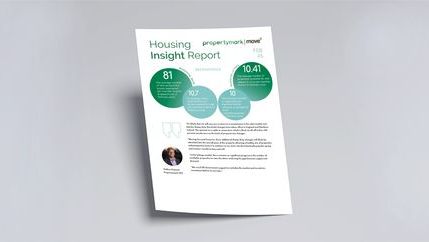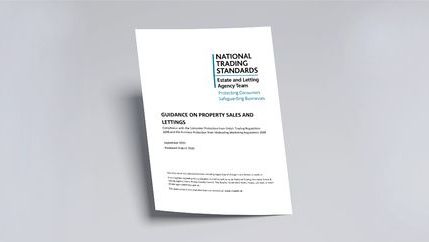
Taking the breaks off sales progression
One significant reason transactions take so long is that key information is missing at the point a property is listed for sale. Buyers are increasingly cautious, lenders and conveyancers are under strain, and even small pieces of missing information can cause weeks of delay.
Housing Insight Report: February 2025
It’s likely that we will now see a return to a normal pace in the sales market now that the Stamp Duty threshold changes have taken effect in England and Northern Ireland. This spurred on a spike in momentum which is likely to tail off in line with previous trends seen on the back of property tax changes.
Providing material information upfront doesn’t just benefit buyers—it’s a practical step that helps agents, conveyancers, and sellers too. By doing this, agents aren’t just ticking a compliance box—they’re actively helping to shorten transaction times, reduce stress, and build trust in the property process.
Supercharging transactions
Recent reporting by The Negotiator suggests that providing proper material information can make sales complete up to 70% faster, with the risk of sales falling through reduced by a third. This evidence reinforces what many in the industry have long suspected: the more information available at the start of the process, the smoother the journey for all involved.
Propertymark’s member research has shown that transactions with complete upfront information move more quickly and are less likely to collapse. Buyers have greater confidence, sellers receive more informed offers, and conveyancers can start their work sooner. Members report that where material information is missing or unclear, it adds friction to the process and creates extra work for everyone involved.
Supporting members to succeed
NTSELAT guidance on property sales and lettings
The National Trading Standards Estate and Letting Agency Team (NTSELAT) has updated its guidance to help property sales businesses comply with the CPRs.
We have long supported efforts to improve transparency and speed in the home buying and selling process and collaborated with the National Trading Standards Estate and Letting Agency Team (NTSELATto define what is material information. We continue to call for consistency and clarity across the sector.
Propertymark’s Sales Protocol Toolkit is a practical resource designed to help agents and vendors prepare properties for sale more efficiently. By encouraging the early collection of key documents and information, the toolkit aims to reduce transaction times, lower fall-through rates, and ensure compliance with Consumer Protection Regulations. It includes updated Property Information Questionnaires (PIQs) that align with the latest guidance on material information, helping agents provide comprehensive details upfront. Agents who have fully implemented the toolkit have reported transaction times as short as seven weeks.
Sales Protocol Toolkit
The toolkit offers huge potential to speed up transactions, reduce fall-through rates and comply with Consumer Protection Regulations.
Non-compliance is not an option
Providing full, material information at the point of listing is no longer just a 'nice to have'—it’s an essential part of reducing fall-throughs, managing client expectations, and protecting your business reputation.
A recent court case in Oxfordshire highlights why accurate material information matters. Vendors who denied knowledge of a nearby hotel development are now facing legal action after it was revealed they had previously objected to the plans. The buyers withdrew after the exchange, citing the undisclosed development as a key concern.
This case is a reminder for agents to verify the information provided by sellers undertaking due diligence can help avoid legal disputes and protect all parties involved.
Dispute on material information accuracy leads to court case
Agents must be aware of the need to conduct due diligence checks on material information, as vendors from Oxfordshire are being sued for damages after claims they failed to disclose accurate information to their buyers. The buyers withdrew from the sale after the exchange of contracts when information of a planned nearby hotel development came to light.









